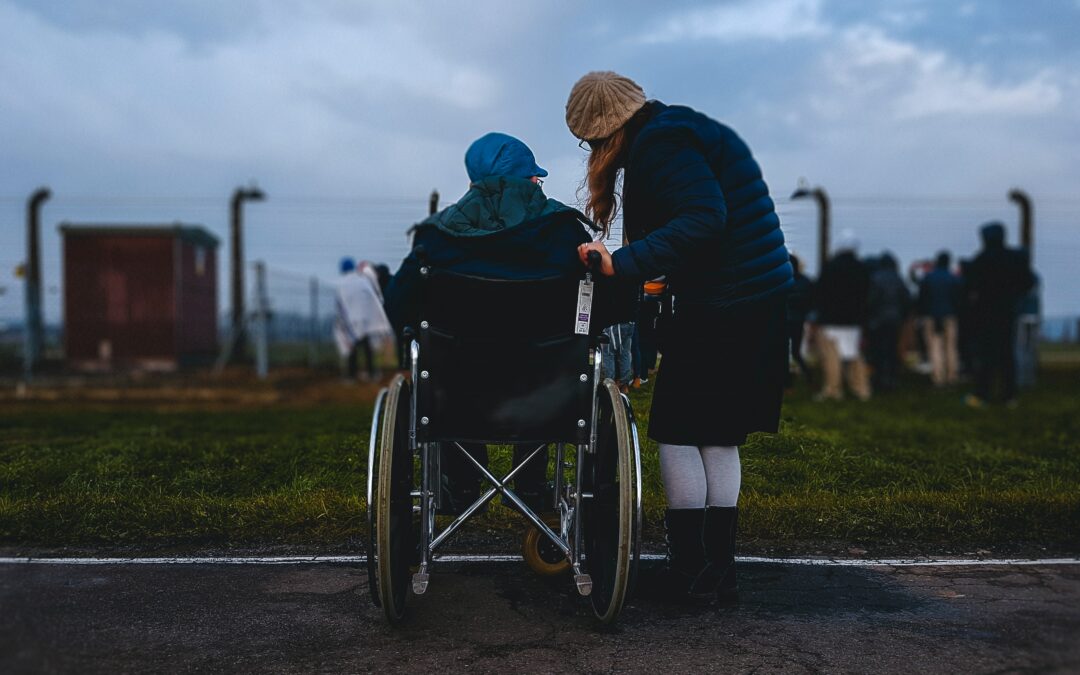Inclusivity is vital to creating an environment where everyone feels valued, included, and respected, regardless of their differences. This concept recognizes and celebrates diversity and promotes the idea that all individuals’ abilities can contribute to the more extended community.
This principle has become especially crucial for adults with disabilities because they constantly face challenges beyond their physical limitations, including the societal stigma that can negatively affect their mental health.
This article will explore mental health, the signs of poor mental well-being, and the relationship between disabilities and these issues. We’ll also tackle how the pandemic affected people with disabilities’ mental health and what prevents them from getting mental healthcare.
What Is Mental Health?
The mental health scale ranges from good mental health to severe mental illness. Daily challenges can cause minor fluctuations for some individuals, while others may fluctuate or remain on the poor mental health or mental illness end. You must also know that poor mental health and mental illness are different. Moreover, avoid stereotyping and dismissing individuals and treat everyone with respect.
What Are the Red Flags of Poor Mental Health or Mental Illness?
Poor mental health can significantly impact your daily life, and you could treat them with medication and therapy. Warning signs of poor mental health include lack of enjoyment, irritability, bad mood, and sleep and appetite changes.
You or your loved one should also seek professional help if you’re experiencing suicidal thoughts, reduced concentration, fatigue, or avoiding certain people, places, or things.
Disabilities and Mental Health Issues: What’s the Relationship between Them?
People with disabilities experience mental distress more frequently than those without disabilities due to physical barriers, negative stereotypes, and reduced community access. They also face challenges in healthcare and are more vulnerable to living below the poverty line and abuse and neglect, which can increase their risk of developing mental illnesses.
How Did the Pandemic Affect Mental Health in People with Disabilities?
The pandemic has had a widespread negative effect on people worldwide, including those with disabilities. Disrupted routines, limited access to healthcare, and social isolation have significantly affected the mental health of people with developmental disabilities and physical limitations. These individuals are also at a higher risk of contracting severe illnesses from COVID-19.
5 Factors Preventing People with Disabilities from Accessing Mental Healthcare
Here are the obstacles people with disabilities face that prevent them from getting quality mental healthcare.
- Provider Misconceptions
Doctors may overlook mental health conditions in people with disabilities and see them as a result of their disability. They may also assume that they need to “fix” these individuals to help them fully participate in their communities. Moreover, disabilities affecting communication can make finding qualified mental health professionals and diagnosing mental health symptoms challenging.
- Social Stigmas and Ableism
Ableism is when others stigmatize and see people with disabilities as less valuable because of their disability.
- Prohibitive Costs
People with developmental disabilities and physical limitations usually can’t afford mental health services not covered by government benefits, leading to the prioritization of physical health over mental well-being and potential homelessness.
- Disconnected Healthcare Networks
Healthcare networks in rural or under-served areas are usually overwhelmed, leading to poor communication and coordination between providers and infrequent, low-quality care for mental health and disability. Insurance coverage issues, technology incompatibility, and travel difficulties can also contribute to physician disconnection.
- Poverty and Unemployment
These individuals struggle to find full-time jobs because of discrimination and usually work temporary or part-time positions without healthcare benefits. Disability services from the government are also typically insufficient to cover living expenses, and living below the poverty line can make transportation difficult for those with mobility-related disabilities.
Conclusion
Everyone deserves to feel valued, included, and respected, regardless of their mental health condition or abilities. You can contribute to a more diverse and inclusive society by educating yourself on the significance of mental health and people with disabilities.
Extended Care offers quality disability services in Aurora, CO, to improve the lives of vulnerable individuals. Contact us now for a free care consultation!

